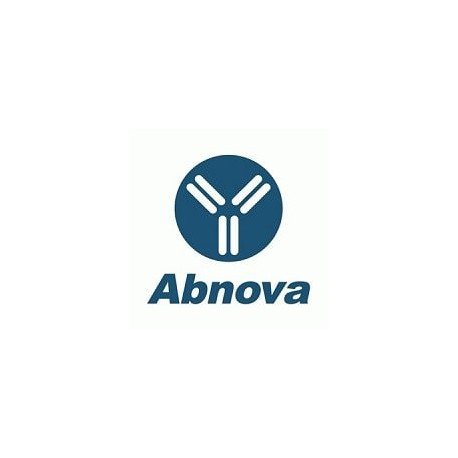Cart 0 Product Products (empty)
No products
To be determined Shipping
0,00 € Total
Prices are tax excluded
Product successfully added to your shopping cart
Quantity
Total
There are 0 items in your cart. There is 1 item in your cart.
Total products (tax excl.)
Total shipping (tax excl.) To be determined
Total (tax excl.)
Data sheet of PCK1 polyclonal antibody
| Brand | Abnova |
| Product type | Primary antibodies |
| Reactivity | Human |
| Host species | Goat |
| Applications | ELISA,WB-Ti |
More info about PCK1 polyclonal antibody
| Brand: | Abnova |
| Reference: | PAB7262 |
| Product name: | PCK1 polyclonal antibody |
| Product description: | Goat polyclonal antibody raised against synthetic peptide of PCK1. |
| Gene id: | 5105 |
| Gene name: | PCK1 |
| Gene alias: | MGC22652|PEPCK-C|PEPCK1|PEPCKC |
| Gene description: | phosphoenolpyruvate carboxykinase 1 (soluble) |
| Immunogen: | A synthetic peptide corresponding to human PCK1. |
| Immunogen sequence/protein sequence: | C-EKEVEDIEKYLEDQ |
| Protein accession: | NP_002582.2 |
| Form: | Liquid |
| Concentration: | 0.5 mg/mL |
| Recommend dilutions: | ELISA (1:16000) Western Blot (0.5-1.5 ug/mL) The optimal working dilution should be determined by the end user. |
| Storage buffer: | In Tris saline, pH 7.3 (0.5% BSA, 0.02% sodium azide) |
| Storage instruction: | Store at -20°C. Aliquot to avoid repeated freezing and thawing. |
| Quality control testing: | Antibody Reactive Against Synthetic Peptide. |
| Note: | This product contains sodium azide: a POISONOUS AND HAZARDOUS SUBSTANCE which should be handled by trained staff only. |
| Product type: | Primary antibodies |
| Host species: | Goat |
| Antigen species / target species: | Human |
| Reactivity: | Human |
| Application image: |  |
| Application image note: | PCK1 polyclonal antibody (Cat # PAB7262) (0.5 ug/mL) staining of human kidney lysate (35 ug protein in RIPA buffer). Primary incubation was 1 hour. Detected by chemiluminescence. |
| Applications: | ELISA,WB-Ti |
| Shipping condition: | Dry Ice |
| Publications: | Screening of 134 single nucleotide polymorphisms (SNPs) previously associated with type 2 diabetes replicates association with 12 SNPs in nine genes.Willer CJ, Bonnycastle LL, Conneely KN, Duren WL, Jackson AU, Scott LJ, Narisu N, Chines PS, Skol A, Stringham HM, Petrie J, Erdos MR, Swift AJ, Enloe ST, Sprau AG, Smith E, Tong M, Doheny KF, Pugh EW, Watanabe RM, Buchanan TA, Valle TT, Bergman RN, Tuomilehto J, Mohlke KL, Collins FS, Boehnke M. Diabetes. 2007 Jan;56(1):256-64. |


